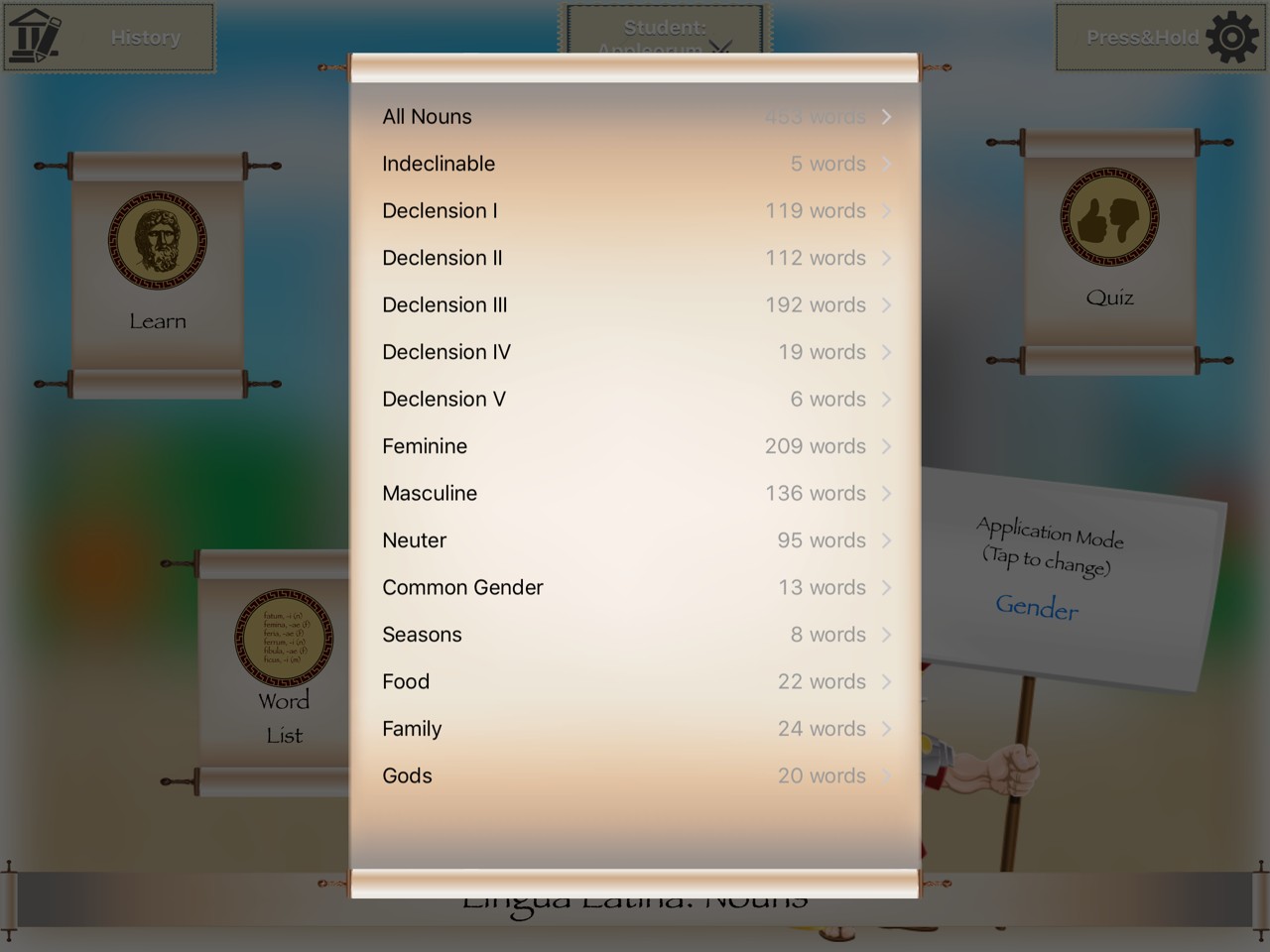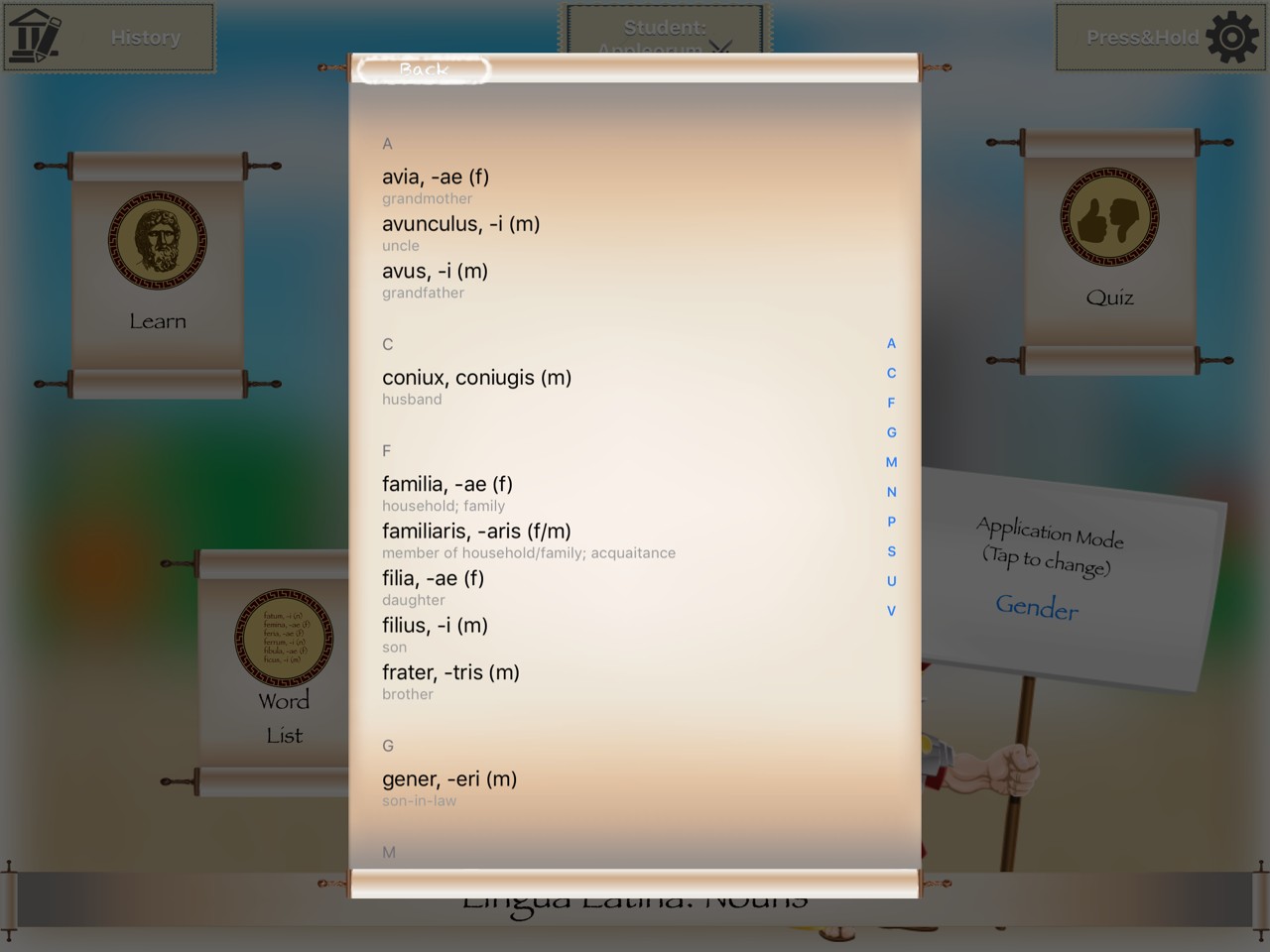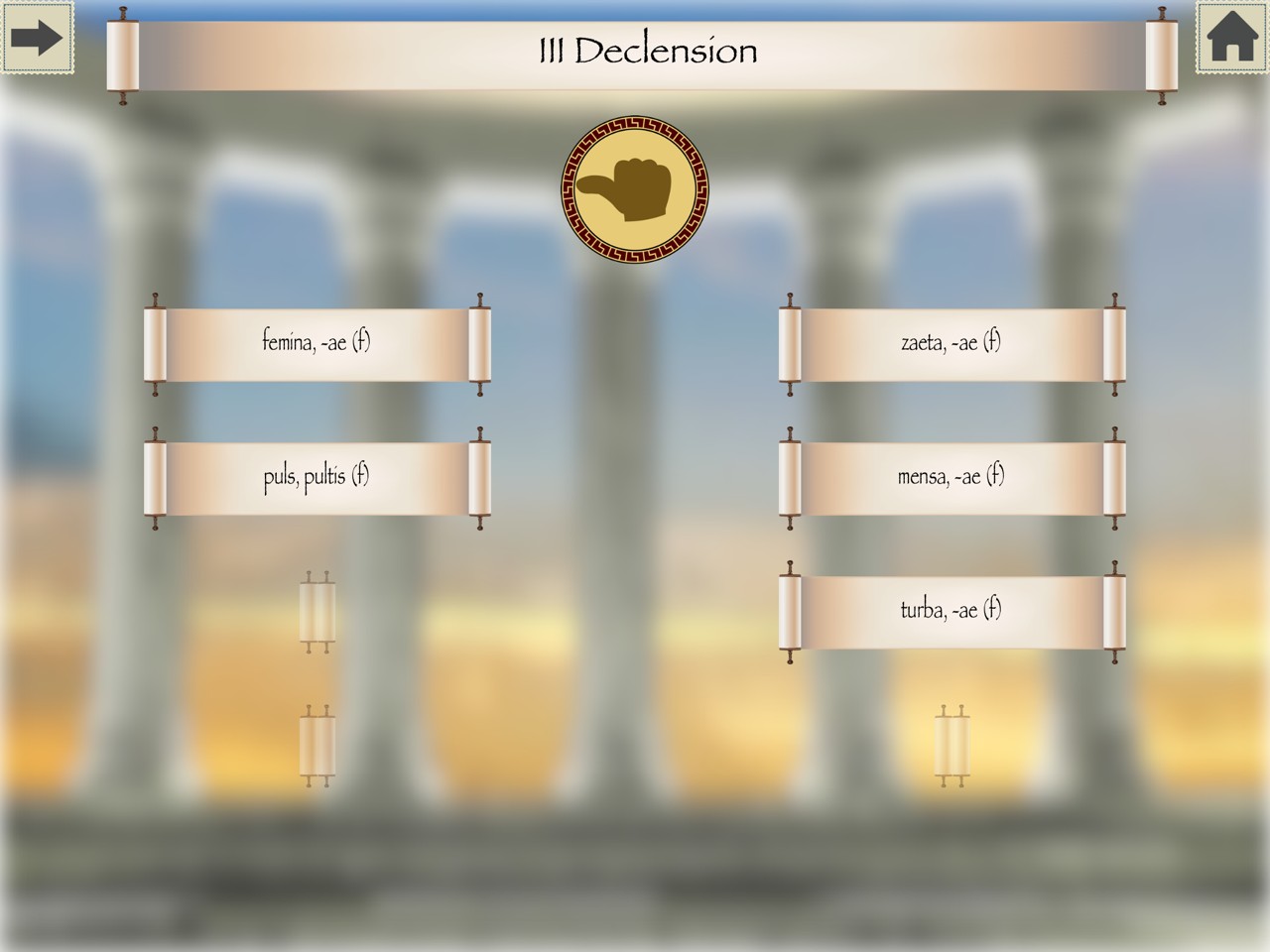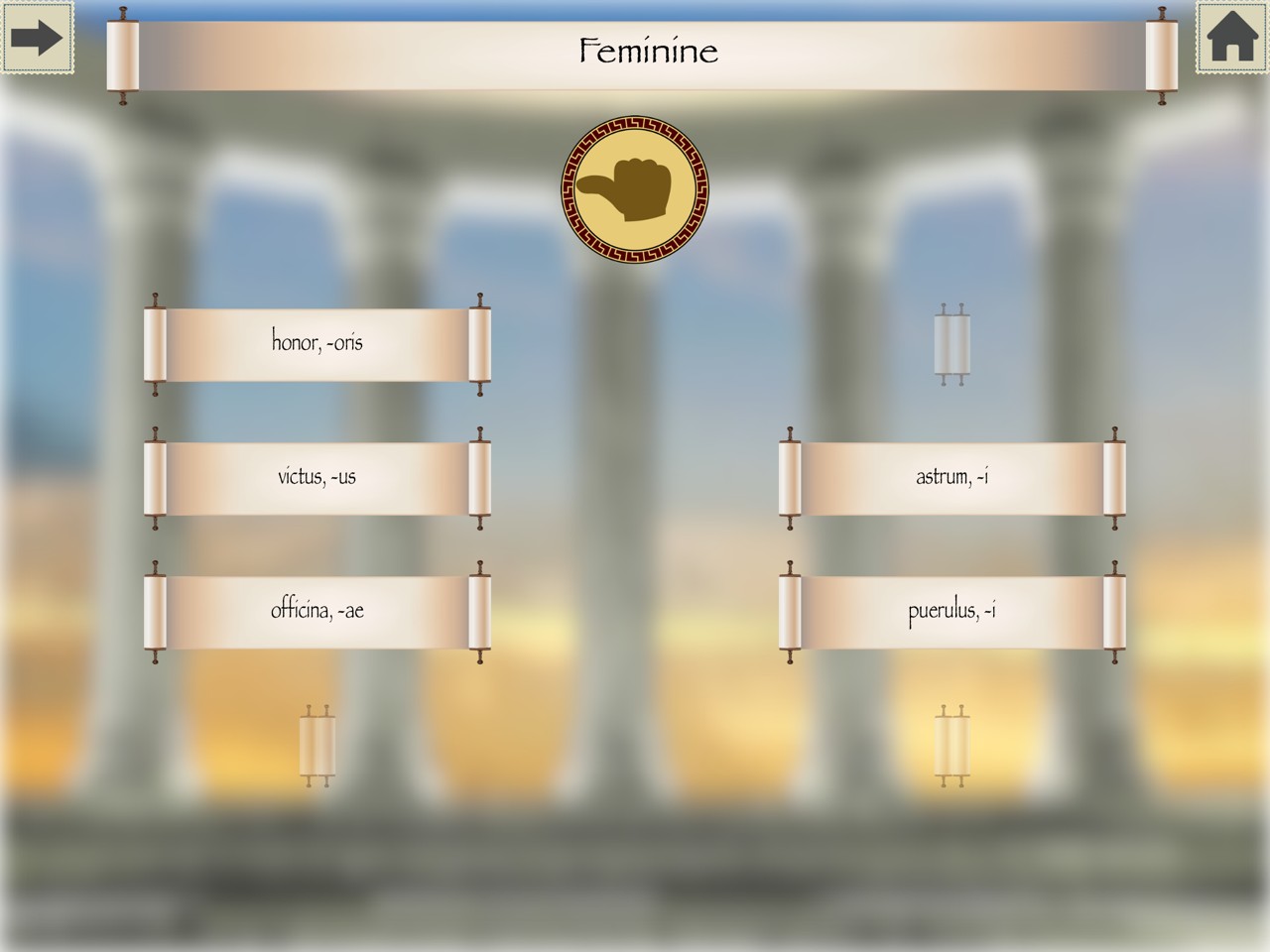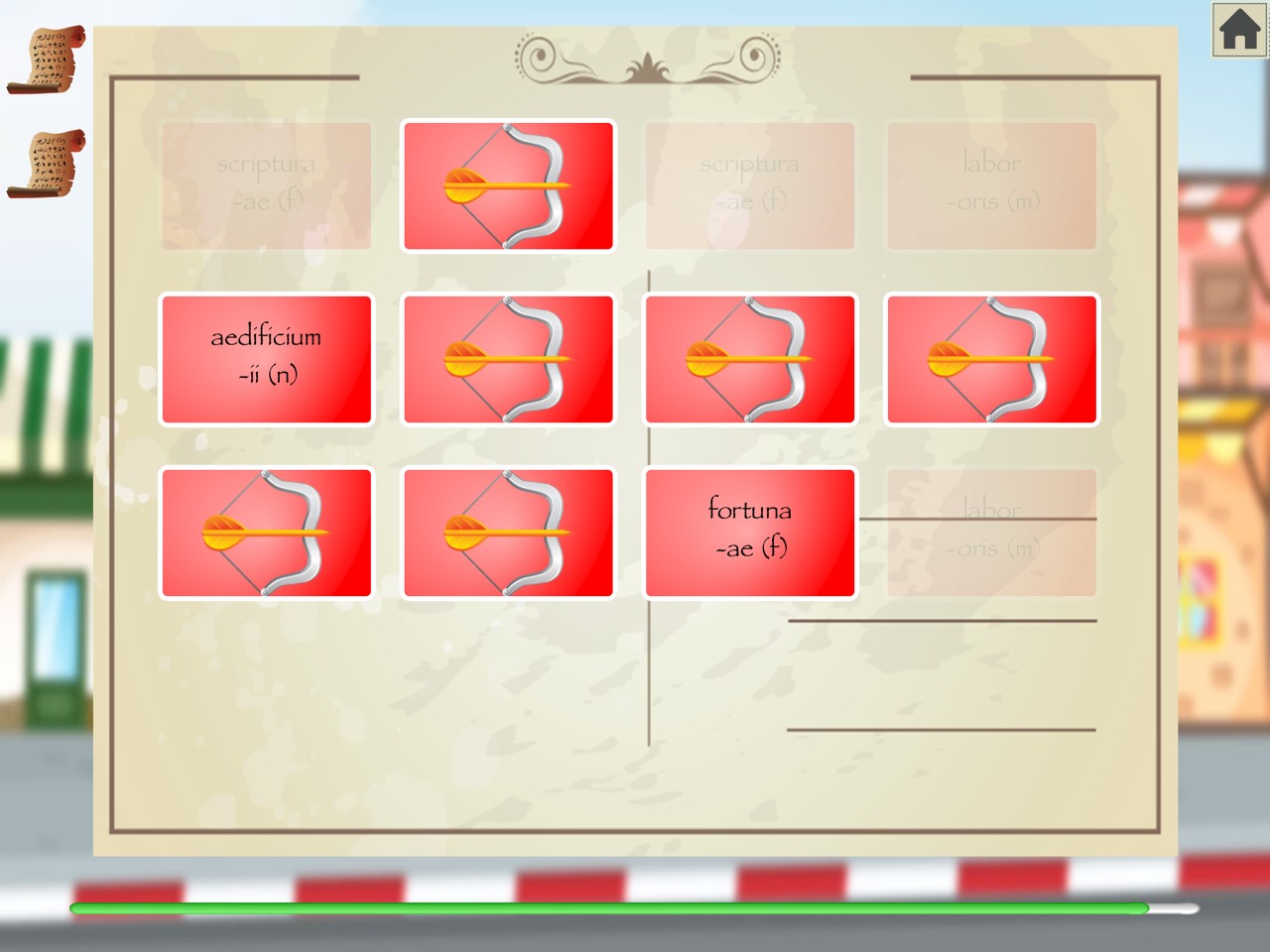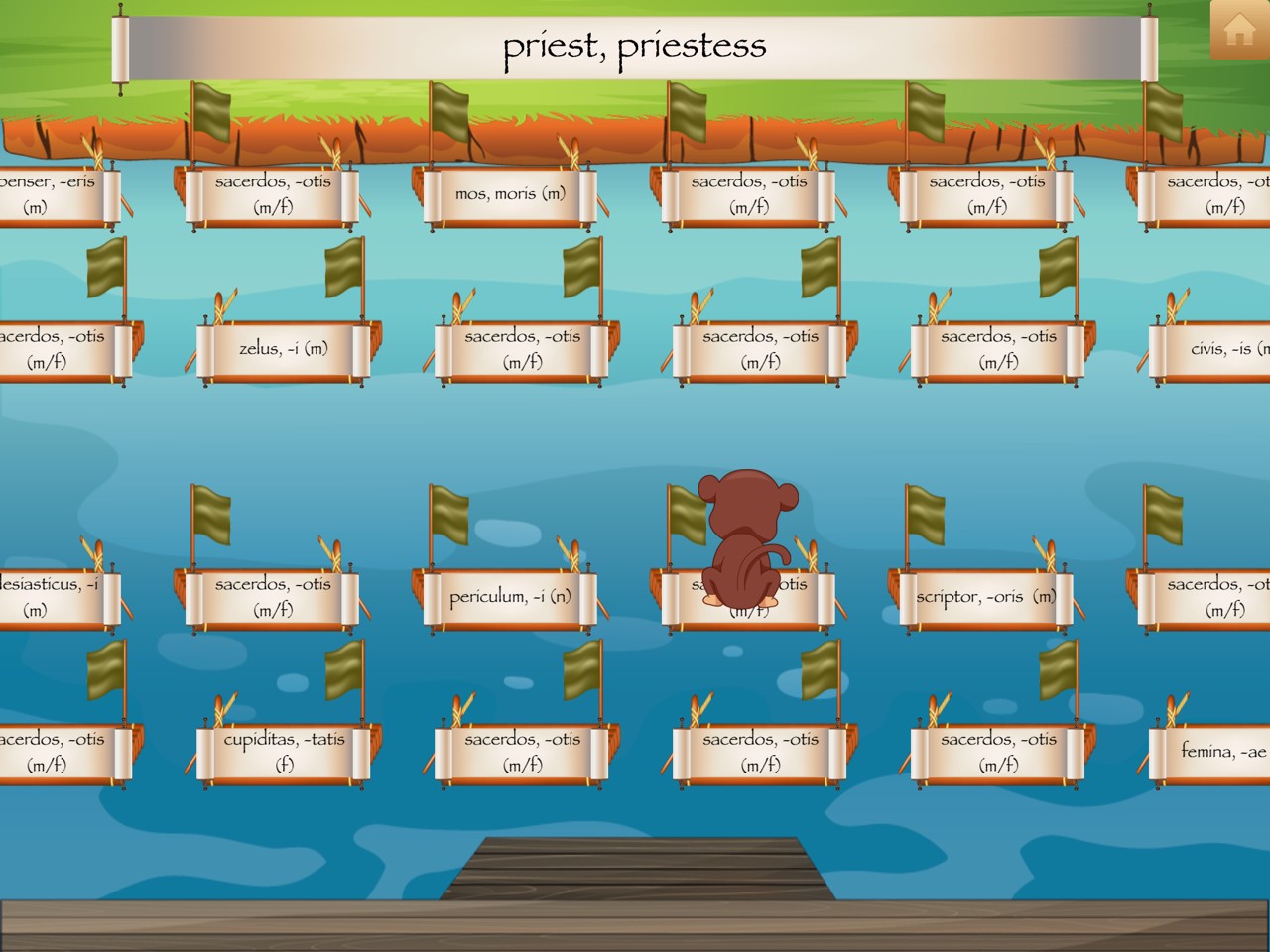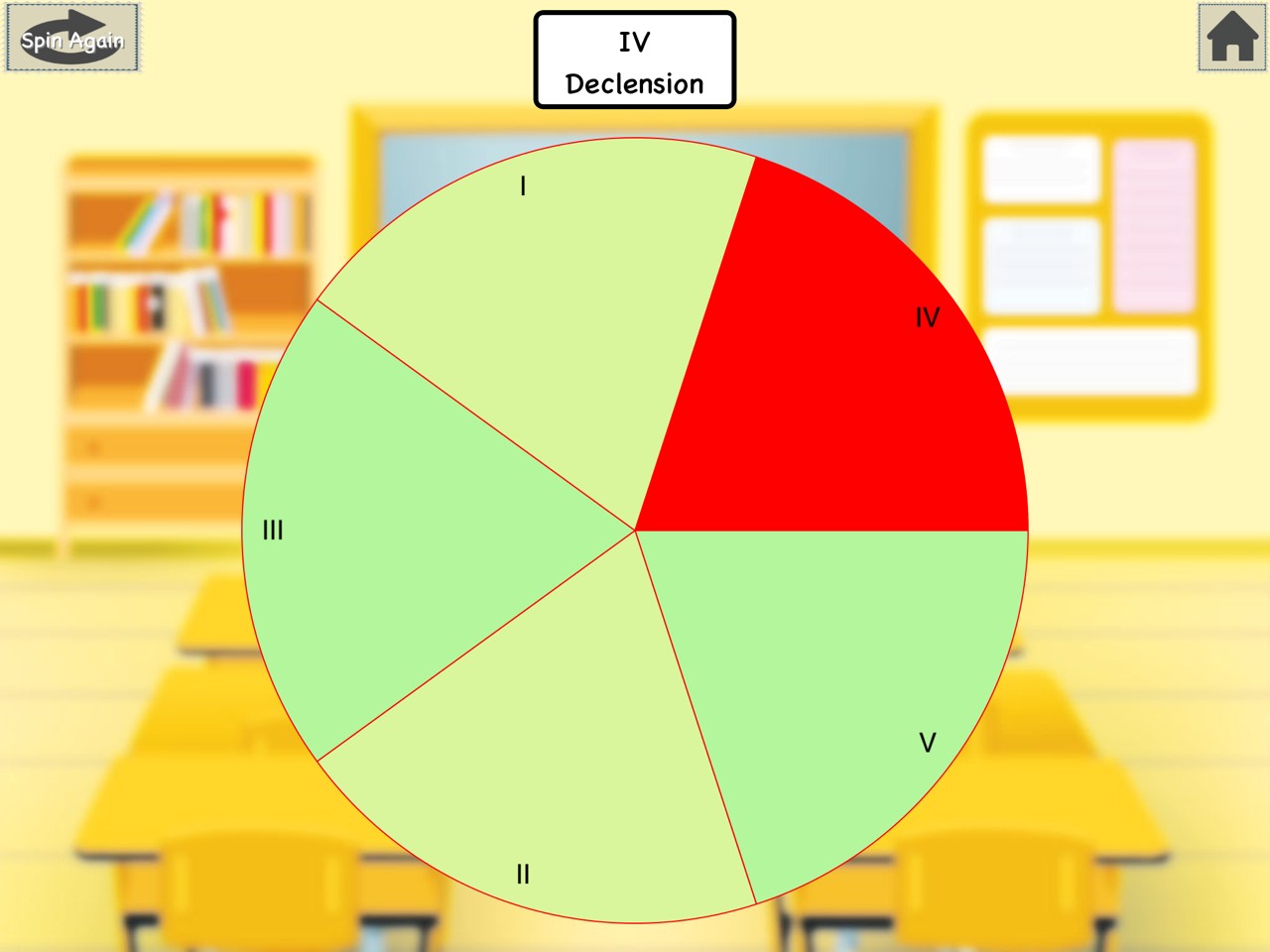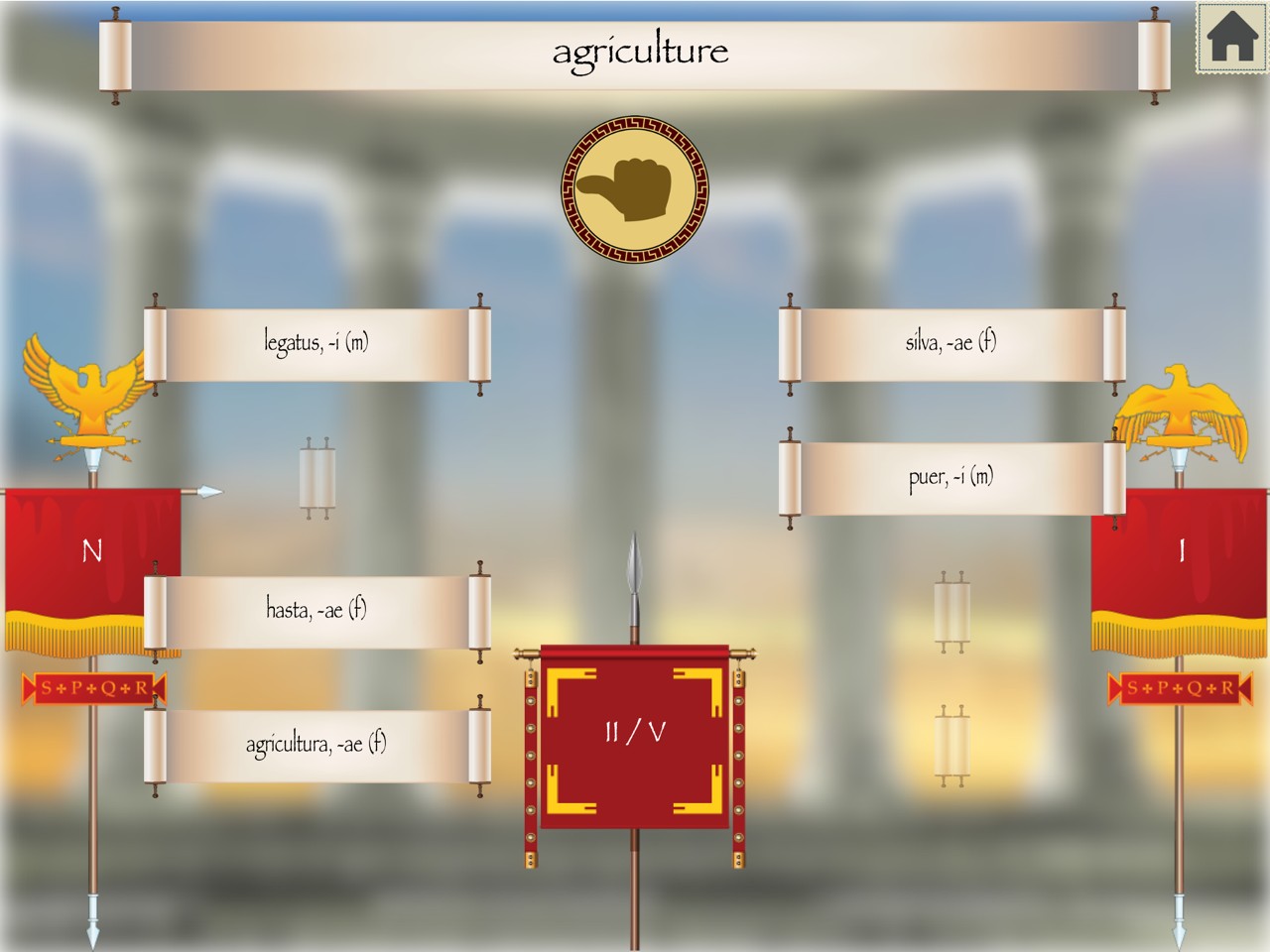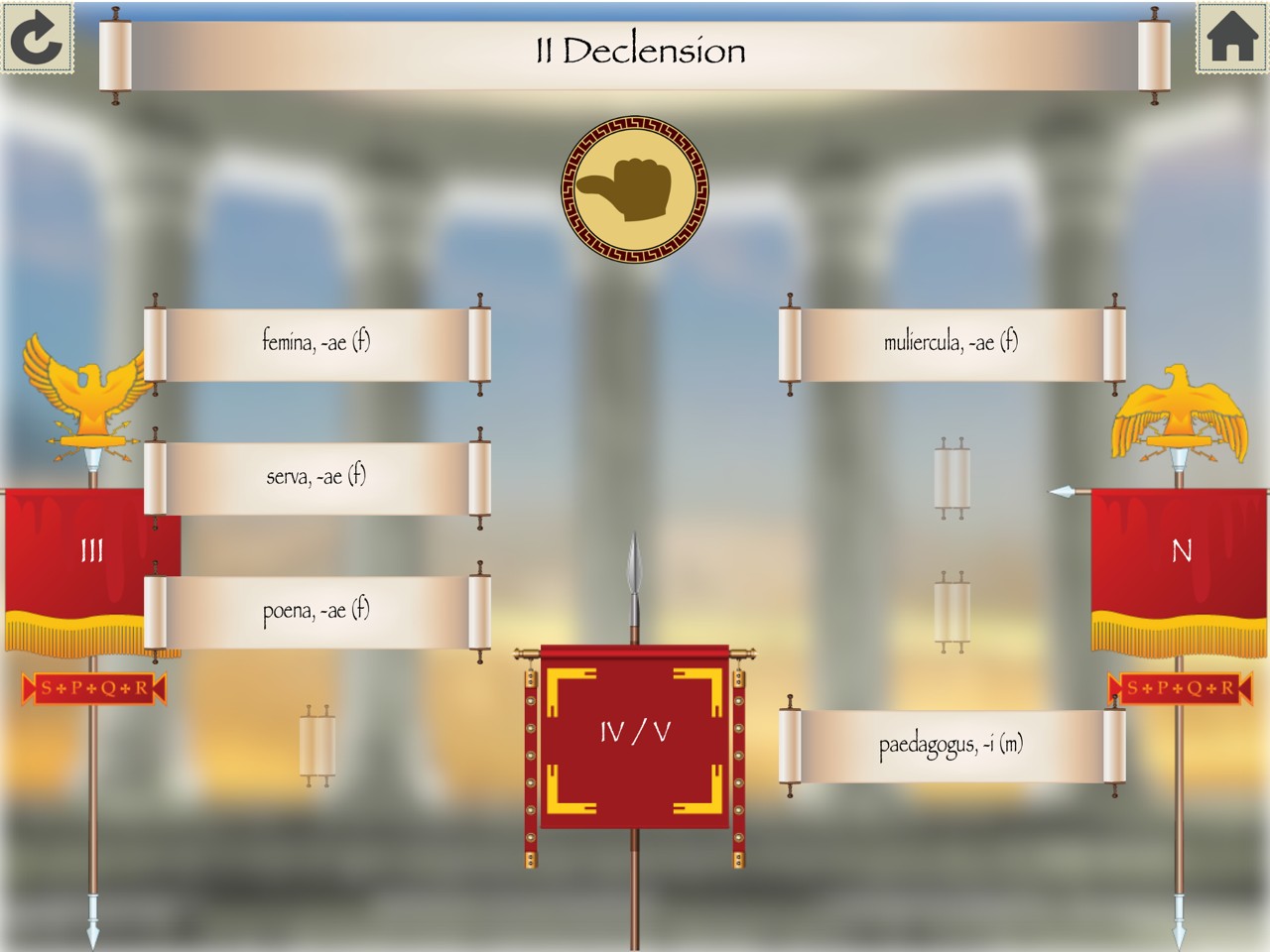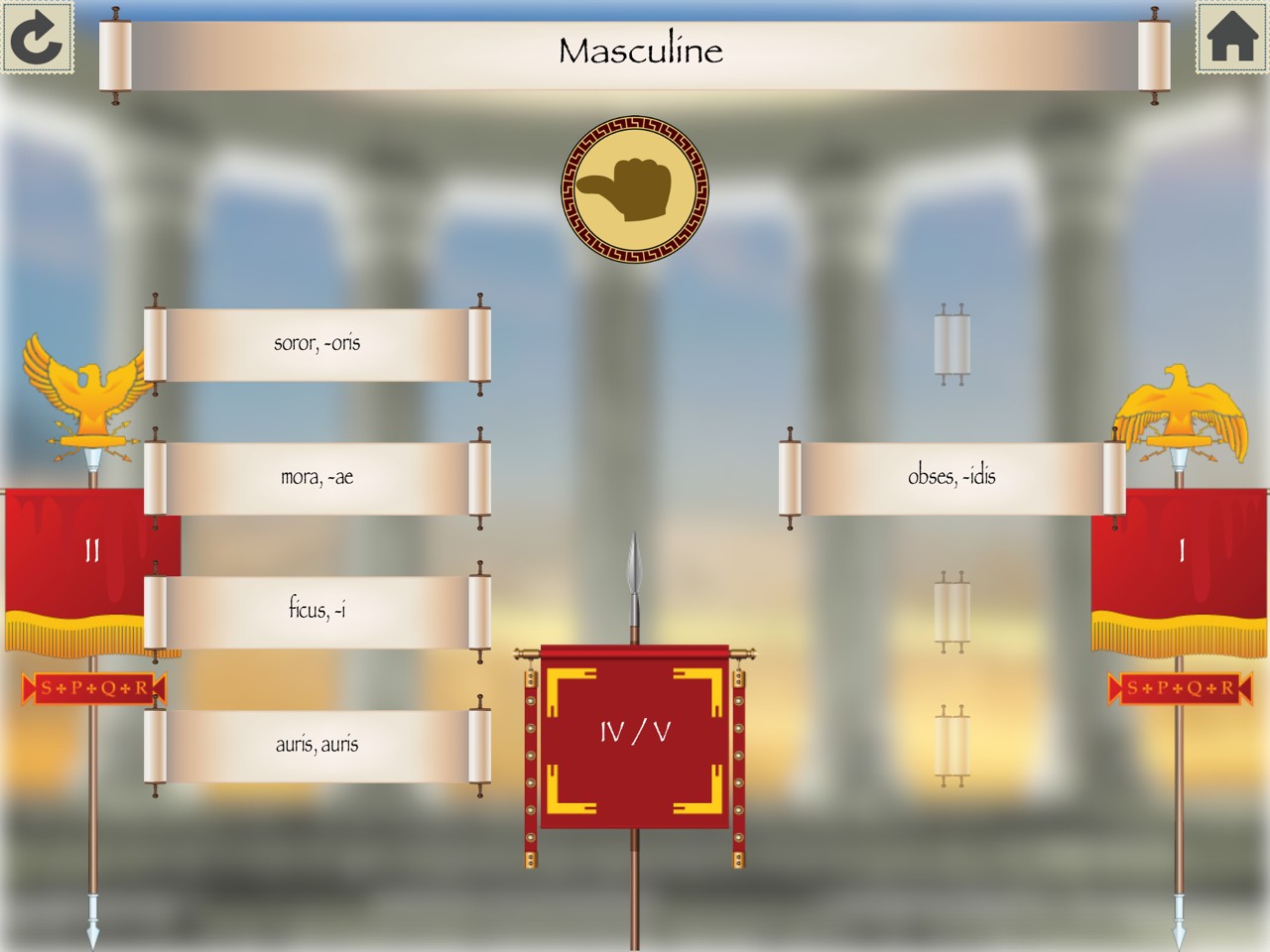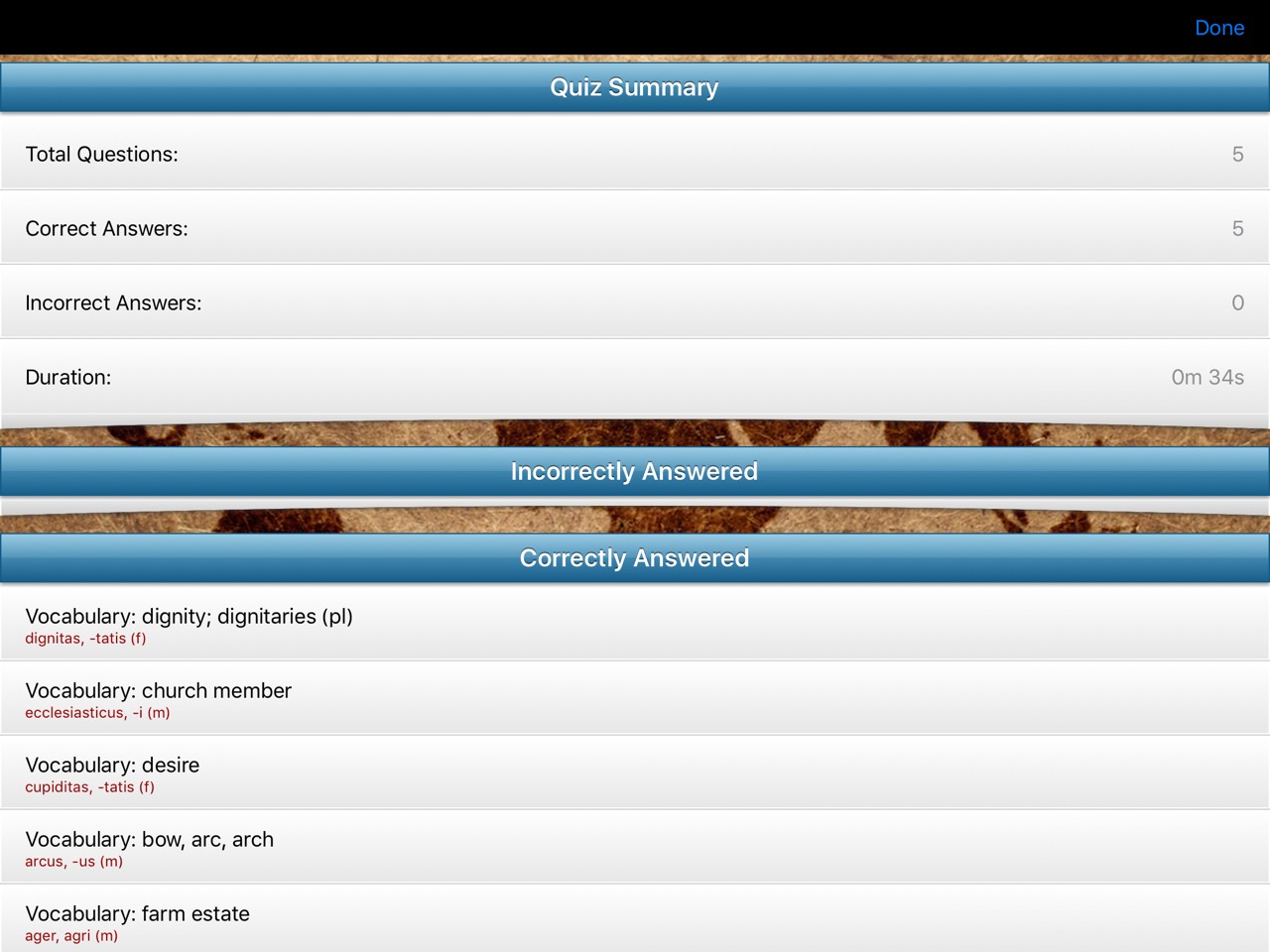- to read the great Classical Literature
- to study Roman history and culture which profoundly influenced our own
- to gain an excellent English vocabulary since so many literary and academic words derive from Latin (it is said that Latin students have generally high SAT scores)
Why does English have so many Latin-root words? Venerable Bede[1], English author and scholar from the VIII century, claimed the single language that linked the varied peoples who inhabited Britain and Ireland at the time was Latin. Also, Latin was the official Language in England between 1086 and 1733. Hence, a considerable influence of Latin onto English. The table below shows just how big that influence was. The right hand side row gives Latin words. The left hand side row gives English translation of the Latin words. The similarity of English and Latin words is obvious.
| Latin | English | |
| annus (year) | annual, anniversary | |
| audire (to hear) | audio, auditorium | |
| carta (charter) | charter | |
| decem (ten) | decade, decimal | |
| dicere (to say) | dictate, dictator, diction | |
| domus (house) | domestic | |
| laborare (to work) | labour, laboratory | |
| manus (hand) | manual | |
| mater (mother) | maternal, maternity | |
| pater (father) | paternal, paternity | |
| tempus (time) | temporary | |
| terra (land) | terrestrial, territory | |
| videre (to see) | video | |
| vocare (to call) | vocal, vocabulary |
How do we teach Latin? Most of us older Latin learners remember learning Latin through the combination of Reading Method in teaching Latin and Grammar Translation Method where drills and memorization are the focus. Later came the voices that promoted the idea that developing listening, speaking and writing skills, even in the case of Latin, will only support reading abilities[1] and help acquire the new language. Finally, the modern day technology gave us additional resources to reinforce language skills. Thus, an electronic tablet such as iPad, or iPad Mini, represent the new era in education.
Lingua Latina Nouns iOS App
Lingua Latina Nouns iOS application focuses on Latin nouns: grammatical aspect as well as their English counterparts. It was designed following Communicative Language Teaching (CLT) Approach. Namely, the app was planned to be a part of Presentation, Practice and Production language teaching methodology.
Presentation – Practice – Production, or PPP, is a method for teaching structures (e.g. grammar or vocabulary). As its name suggests, PPP is divided into three phases, moving from tight teacher control towards greater learner freedom. Practically the method relies on the progression from presentation, through controlled practice, to free production. Having this in mind Lingua Latina Nouns App was given three main parts Learn, Practice and Quiz.
Presentation
A presentation phase is controlled by the teacher. The teacher might present a grammar rule without reference to a situation, e.g. through a description supplemented with examples or through substitution tables. For Latin into English translation it might look like this:
| Latin Noun | in English |
| nefas (n) | sin, crime, abomination |
| instar (n) | an image, likeness |
| fas (n) | divine law |
| mane (f) | in the morning |
Presentation in Lingua Latina Nouns iOS App is given in the Word List on the Home screen of the App and in customizing Learn and Quiz Modes. Word List offers a list of Latin words and their English translations. The list is easily searchable by different categories (sematic or grammatical).
Learn Mode in Lingua Latina Nouns iOS App can easily be transformed into a presentation part. To achieve this, choose 0 for Number of Extra Words in SETTINGS.
This means that you will see in the Learn Mode only the correct answer to the question. A student is given an option to learn either vocabulary or grammar (Declension or Gender) in Learn Mode.
Practice
During the practice phase, students practice saying or writing the language structure correctly. Practice activities are controlled and usually include drills, multiple-choice exercises, gap-and-cue exercises, transformations etc. In this phase, the teacher’s role is to direct the activities, to provide positive feedback to students, correct mistakes and model the correct forms.
Learn and Practice Modes in Lingua Latina Nouns App represent a range of highly controlled to less controlled activities.
Learn Mode can be transformed into a controlled activity by adding redundant (extra) words as distractors. It is a rather controlled drill since tapping the incorrect word does not lead to penalty, bad score or activity pause. If a student taps an incorrect word, only a buzz sound is heard. Student is encouraged to try again until he taps the correct word.
A student is given an option to practice either vocabulary or grammar (Declension or Gender) in Learn Mode.
Practice Mode consists of a number of games. The game play of each game includes the use of Latin words, that is, Latin nouns. These games are much less controlled than the activity in Learn Mode. Upon tapping an incorrect Latin noun, or an incorrect spelling in Word Search, the games are set to indicate lack of success which may lead to pausing or stopping the game and inviting the student to try again.
There are 4 games and a follow up activity in an iPad app, that is, 3 games in an iPhone/ iPod Touch app and a follow up activity:
 a)Memoria Ludum (Card Matching game) is a classic memory game that expects students to match only the same Latin Nouns.
a)Memoria Ludum (Card Matching game) is a classic memory game that expects students to match only the same Latin Nouns.
As all card matching games, this practice game is best played with a friend(s). With this game students become more exposed to Latin nouns. The repetition of the revealed cards reinforces acquisition of Latin words. As the position of the cards with nouns is important, a student has to memorize both the position and the noun itself (spelling included).
In SETTINGS, you may choose
– Game time (1 minute, 3 minutes, unlimited)
– Number of pairs to match (4, 6, 8)
– See-through helper tool (0, 1, 2, 3). This is like an x-ray feature that lets you see the words through the cards.
b) Pontem Transitu (Bridge Crossing) game reveals Roman soldiers in chariots. Each chariot carries a word. An English definition of the sought word is on the bridge. A student is expected to tap the word on the chariot that corresponds with the English definition/translation on the bridge. If the correct word is tapped, the Roman soldier and the chariot go under the bridge safely landing. If the incorrect word is tapped, the soldier and the chariot disappear into the clouds with a sad “No!”
This activity practice game can be given to students to do individually or in pairs. As pair-work activity this educational game gets a competitive and fun aspect.
In SETTINGS, you may choose:
– Composition speed (Low, Medium, and High). Here you choose how fast you want the chariots to move)
– Extra Wagon Frequency (Low, Medium, and High). Here you choose how frequently you want to see the distractors, that is, the words that do not correspond to the English definition/translation.
– Required Correct Answers (1, 2, 3, 4, 5). Choose the required number of correctly tapped chariots before the game stops.
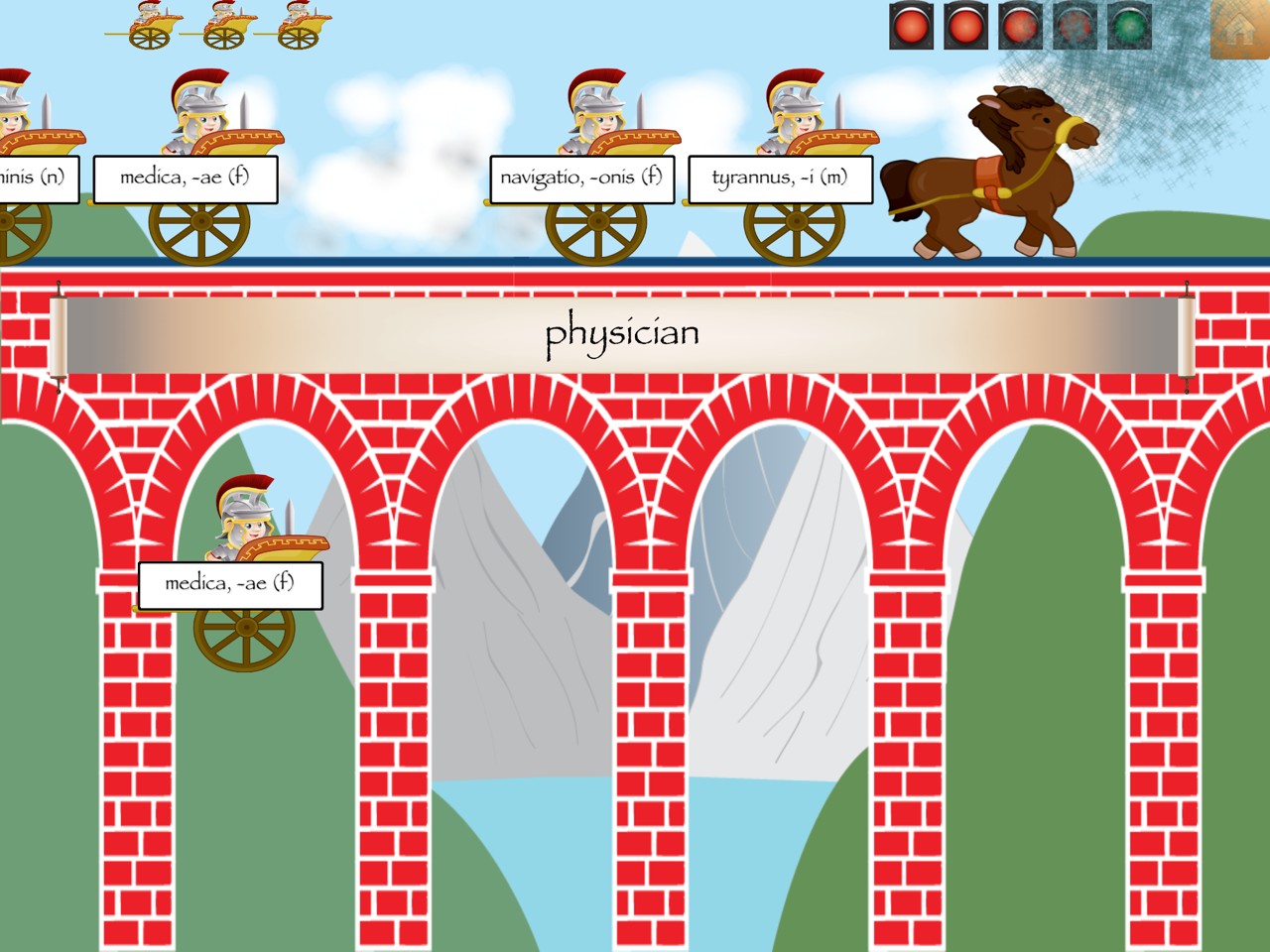 c) Tiberim Transitu (River Crossing) game is a fun game in which a student is trying to help an animal (elephant, rhino, pig, monkey…) cross the river by jumping from one raft onto another. The animal has to jump onto the raft (or boat) with the word that corresponds to the English translation/definition offered on the top of the screen. The animal is enabled to jump by a gentle tap on its back. The rafts with the correct and incorrect Latin words are moving all the time from left to right, and from right to left. The trick is to tap the animal at the moment the raft with the correct Latin word is just in front of the animal.
c) Tiberim Transitu (River Crossing) game is a fun game in which a student is trying to help an animal (elephant, rhino, pig, monkey…) cross the river by jumping from one raft onto another. The animal has to jump onto the raft (or boat) with the word that corresponds to the English translation/definition offered on the top of the screen. The animal is enabled to jump by a gentle tap on its back. The rafts with the correct and incorrect Latin words are moving all the time from left to right, and from right to left. The trick is to tap the animal at the moment the raft with the correct Latin word is just in front of the animal.
It seems that students can do this activity either individually or in pairs. It is a quick pace game so they can quickly take turns and it gives them extra joy to compete.
In SETTINGS, you may choose:
– Raft Speed (Low, Medium, and High). Choose how fast you want the rafts to move from left to right / right to left.
– Extra Rafts Frequency (Low, Medium, and High). Choose how frequently you wish to see distractors, that is, rafts with non-rhyming words on them.
d) Memoria Ludum (Word Search) game is a classic word search game in which a student attempts to cross out letters that make a certain Latin word following Latin spelling. A list of words is given in a column on the right hand side of the screen. A student looks for each word in a square filled with letters.
A great educational advantage of this particular game is that one can send it by e-mail as a pdf file and print it out. So the Word Search can be used on an iPad / iPhone or on paper.
Students like to do this one individually. It amuses them and keeps them quiet. It is awesome filler between activities, or an extra activity for faster students who do not like to sit around and wait for everyone to finish.
In SETTINGS, you choose:
– Board Size (7×7, 8×8, 9×9, 10×10, … 14×14). 7×7 means a board with seven letters by seven letters…
– Allowed Directions (East-West, Northwest-Southeast, North-South, Northeast-Southwest, East-West, Southeast-Northwest, South-North, and Southwest-Northeast). This option refers to the direction of the letters in the word. For beginners, and for younger students the Est-West direction is recommended. The arrows on the screen show which directions are selected in the SETTINGS for the current word search.
– Maximum Number of Words to Find (1, 2, 3, 4, 5, 6, 7, 8, 9, 10, … 20). This option refers to the number of words you would like to search in Memoria Ludum Game.
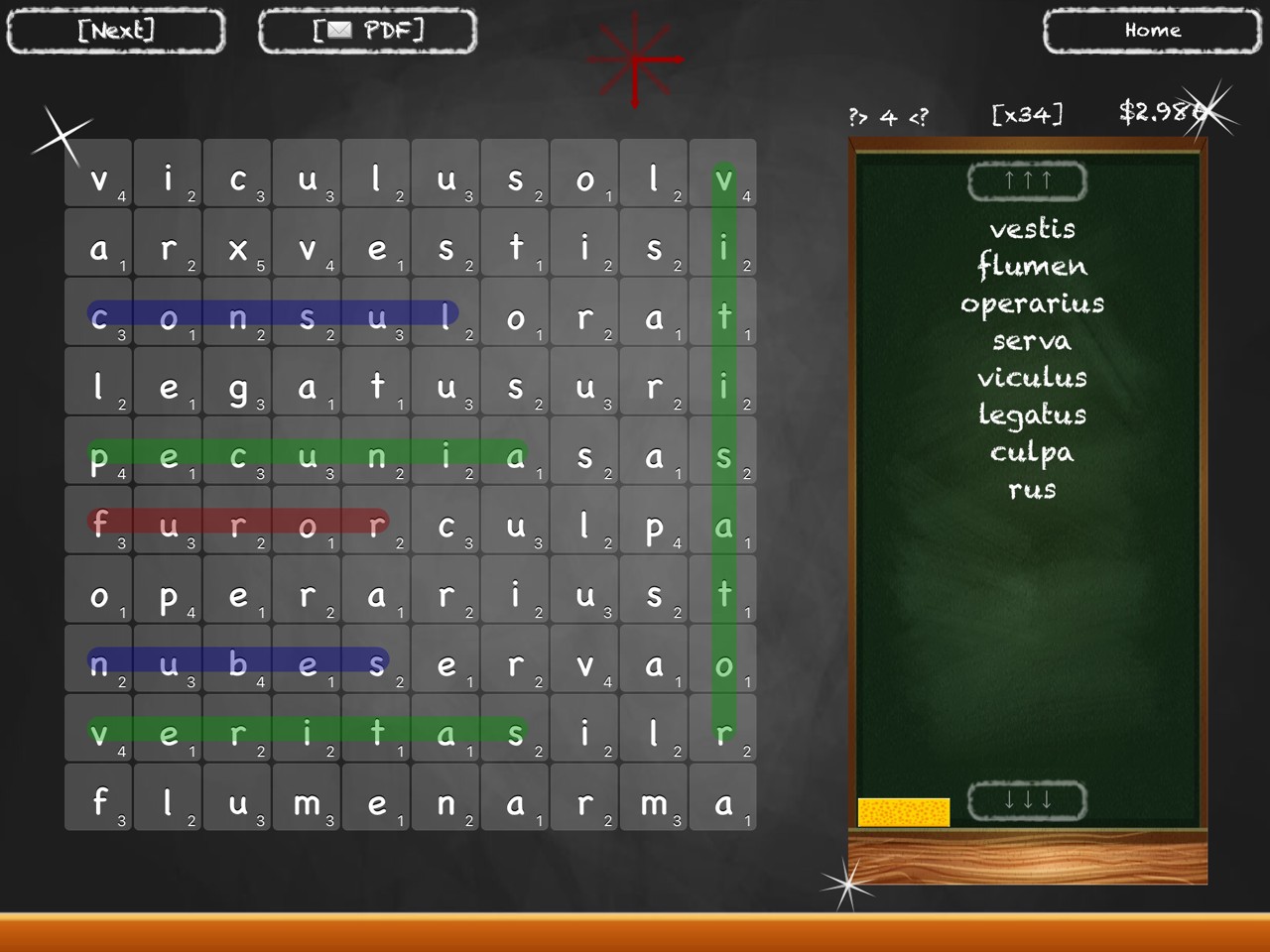 e) Nere Rota (Spinning Wheel) is a follow-up activity designed as a fun roulette with Roman numerals written on it. The Roman numerals stand for Latin noun declensions. The roulette spins and stops on a random Roman numeral. Students are asked to think about and say out loud/ or write down any words from the noun declension that is shown.
e) Nere Rota (Spinning Wheel) is a follow-up activity designed as a fun roulette with Roman numerals written on it. The Roman numerals stand for Latin noun declensions. The roulette spins and stops on a random Roman numeral. Students are asked to think about and say out loud/ or write down any words from the noun declension that is shown.
This can be a great group work. Students can use a list of all the Latin words in the app (Word List on Home Screen) as a reminder.
Another idea is to turn this into a vocabulary peer testing or even a competition. One group writes down several (3 to 5) nouns from the 1st declension, another group writes down 3 to 5 nouns from the 3rd declension. Then, group one reads their Latin nouns without offering translation. The second group is expected to translate those nouns. Next, the groups switch roles so the second group reads their Latin nouns and the first group translates those nouns.
Production
When the students have completely mastered the concept and spelling in controlled exercises, they can move on to the (free) production phase. In this phase, they use the newly learnt language concept to produce oral or written texts. The follow-up activity Nere Rota (Spinning Wheel) could be used to lead the students into a less controlled activity. Production activities may include dialogues, oral presentations, and the production of sentences, paragraphs or longer texts. The teacher is not expected to intervene or correct in this phase. If mistakes are made, they are pointed out after the exercise has finished.
Lingua Latina Nouns iOS App did not include the Production Phase of PPP in the design of the app. It is left to the teachers/caregivers to involve students in using their knowledge of Latin nouns by writing a simple narrative using some of the words from the app and showing they have mastered vocabulary and grammar. Students may be asked to invent a short poem (e.g. an acrostic poem in Latin or English but using a Latin noun for the beginning of lines).
Quiz
Both teachers and parents have a need to see students’ progress report presented to them after a while. Thus, Quiz mode is designed to focus on testing students’ accuracy providing them with a quiz score. Students’ progress report can be tracked in HISTORY section of the app. The report tracks progress of individual students.
In SETTINGS, you may choose the number of questions you wish the students to answer. To do this go to SETTINGS, then Miscellaneous Settings, then Number of Questions in Quiz, and then use to slider to reach the desired number of questions (5, 10, 15, 20, or 25).
You can choose whether you wish the students to be tested on grammar (declension or gender) of Latin nouns or vocabulary. This can be chosen on the home screen of the app. Furthermore, you can choose which declensions should be included in the quiz. For this option go to SETTINGS, then Word Settings – Active declensions, and finally tap the Roman numerals representing noun declensions to choose the desired declension(s). Also, you can choose the maximum number of correct words to be used in the Quiz in SETTINGS of the app (go to Word Settings, next Tap to select active word classes, and then tap next to the desired rhyming letter cluster).
After completing the quiz, Quiz Summary is given with information on the
- Total number or questions
- Correct answers
- Incorrect answers
- Duration of the quiz
Incorrectly and correctly answered questions are given in details.
History section of the app shows individual student’s progress.
Lingua Latina Nouns iOS App (https://itunes.apple.com/us/app/lingua-latina-nouns/id934996175?mt=8) helps students learn Latin nouns (Learn), practice them through 5 different games (Practice), and finally lets students take the test and see how much of Latin they acquired (Quiz). A student chooses whether he wishes to learn/practice the meaning of nouns (Vocabulary) or grammar (Gender or Declension). You can customize the content to meet your students’ needs.To learn HOW to IMPLEMENT the app’s features in your CLASSROOM follow this link: https://www.atreks.com/howto-use-lingua-latina-nouns-ios-app/
[1] Bede (/ˈbiːd/ beed; Old English: Bǣda or Bēda; 672/673 – 26 May 735), also referred to as Saint Bede or the Venerable Bede (Latin: Bēda Venerābilis), was an English monk at the monastery of Saint Peter at Monkwearmouth and its companion monastery, Saint Paul’s, in modern Jarrow, County Durham, both of which were then in the Kingdom of Northumbria. He is well known as an author and scholar, and his most famous work, Historia ecclesiastica gentis Anglorum (The Ecclesiastical History of the English People) gained him the title “The Father of English History”.
[1] The Modern Language Journal 80, number 1 (1996) presents an article by Robert J. Ball and J. D. Ellsworth, “The Emperor’s New Clothes: Hyperreality and the Study of Latin,” pp. 77-84, and a response by Martha G. Abbott and Sally Davis, “Hyperreality and the Study of Latin: Living in a Fairy Tale World,” pp. 85-86.
